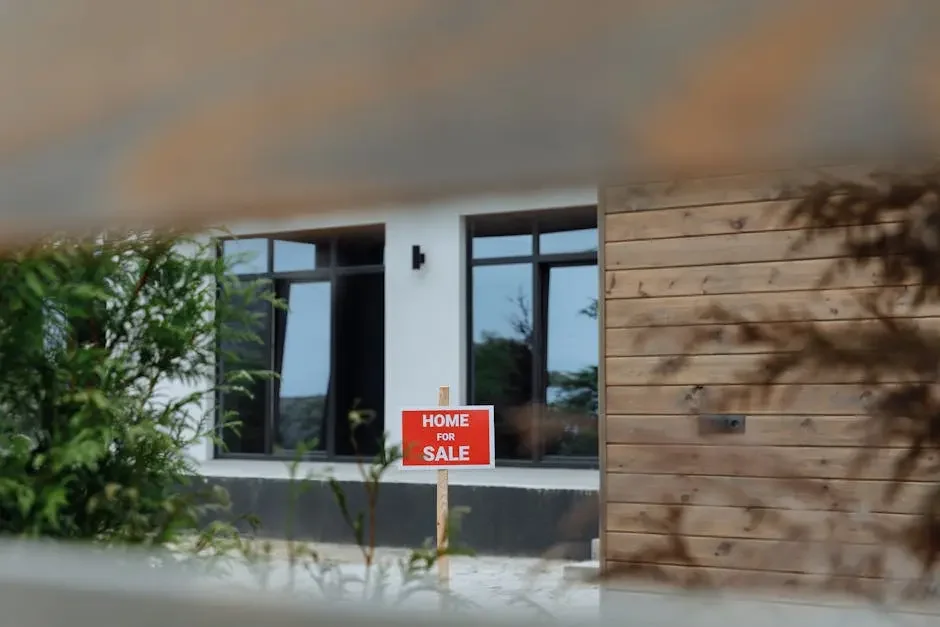Buying a home in Virginia can be an exhilarating yet overwhelming experience. Whether you're a first-time buyer or looking to upgrade, understanding the local market and knowing which steps to take can make the journey smoother and more enjoyable. In this guide, we'll walk you through ten essential tips to help you navigate the Virginia real estate market with ease.
1. Understanding the Virginia Real Estate Landscape
Before diving into buying a home, familiarize yourself with the unique aspects of the Virginia real estate market. From bustling urban areas to serene countryside, Virginia offers diverse options. Researching local market trends will help you make an informed decision.
Virginia's diverse landscapes range from the Blue Ridge Mountains to coastal areas like Virginia Beach. This diversity means that the real estate market varies significantly across the state. Urban areas like Alexandria and Arlington offer vibrant communities with cultural amenities, ideal for those looking to stay close to the DC metropolitan area. On the flip side, more rural areas provide a tranquil lifestyle, often with larger plots of land and lower housing costs. By understanding the local market, you can identify regions that align with your long-term goals and lifestyle preferences.
2. Setting a Realistic Budget
Determine how much you can afford before starting your home search. Consider all expenses, including mortgage, taxes, insurance, and maintenance. Knowing your budget will narrow down your options and prevent overextension.
A common guideline is to limit your housing costs to no more than 30% of your monthly income. However, it's essential to account for your overall financial situation, such as outstanding debts and future expenses like college tuition or retirement savings. Use online mortgage calculators to get a preliminary estimate of what you can afford, but also consult with a financial advisor for personalized advice. By setting a realistic budget, you'll avoid the heartache of falling in love with properties outside of your financial reach.
3. Getting Pre-approved for a Mortgage
Secure a mortgage pre-approval to show sellers you're serious about buying. It also helps you understand how much financing you'll likely receive and can speed up the buying process.
Mortgage pre-approval involves a lender reviewing your credit score, income, and financial history. This process gives you a realistic view of what you can borrow and might even give you an edge over other buyers. Having a pre-approval in hand signifies to sellers that you are a credible buyer, which can be a deciding factor in competitive markets. To ensure the best outcomes, compare offers from different lenders and consider locking in your rate if the market is favorable.
4. Researching Neighborhoods
Virginia is home to a variety of neighborhoods, each with its own charm and amenities. Take time to explore potential areas, focusing on factors like schools, commute, and lifestyle options to find the right fit for you.
When exploring neighborhoods, prioritize what's most important to you and your family. For example, if you have children or plan to in the future, you'll want to look into school quality and proximity. If you work in a specific location, evaluate the commute times and available transportation options. The character of a neighborhood can also impact your decision; some buyers prefer quiet, suburban settings while others may seek the energy of urban living. Resources like crime maps, property tax records, and community forums can provide additional insights when making your choice.
5. Working with a Local Real Estate Agent
A knowledgeable local real estate agent can be your greatest ally. They understand the market nuances and can provide invaluable insights to guide you through the buying process efficiently.
When choosing an agent, look for someone with a strong track record in the areas you're interested in. Agents who are deeply familiar with local communities can alert you to new listings faster and steer you clear of pitfalls, like overpaying or overlooking critical issues during an inspection. They can also assist in negotiations and help you understand local laws and regulations that may affect your purchase. Always explore client reviews and, if possible, seek recommendations from friends or family who know the area well.
6. Prioritizing Your Home Preferences
Create a list of must-have features and deal-breakers to refine your search. Consider elements like size, layout, proximity to work, and nearby amenities to find a home that meets your needs.
Your home is a significant investment, so ensure it aligns with your lifestyle. Whether you need ample outdoor space for pets, a home office, or proximity to great restaurants or hiking trails, list these preferences clearly. A common mistake buyers make is compromising too much on what they initially wanted, leading to buyer's remorse. Keep an open mind, but also stick to fundamental needs that do not diminish once you've settled in.
7. Attending Open Houses and Virtual Tours
Open houses and virtual tours offer a firsthand look at potential homes. Take advantage of these opportunities to inspect properties, ask questions, and get a feel for the neighborhood.
With advances in technology, many sellers now offer virtual tours, allowing a comprehensive walkthrough experience from the comfort of your current home. This can be a time-efficient way to rule out properties that don’t suit your needs before scheduling in-person visits. During open houses, observe not only the condition of the home but also the ambiance of the neighborhood. Talking to neighbors or other potential buyers can provide additional perspectives that you might not get from a listing.
8. Understanding Home Inspection Reports
A home inspection is crucial for identifying issues that may affect the property’s value or require repairs. Learn to interpret inspection reports and decide whether any problems are negotiable or too costly.
Home inspections typically cover structural aspects, electrical systems, plumbing, and the condition of major appliances. While some issues found might be minor, like cosmetic updates, others might require substantial investment. It's imperative to differentiate between surface defects and potentially hazardous problems that could affect your living conditions and financial investment long-term. In some cases, you might be able to negotiate repairs or ask for a reduction in the purchase price based on the inspection report findings.
9. Negotiating the Offer
Your real estate agent can help you craft a competitive offer based on current market conditions. Be prepared to negotiate on price, closing costs, and any contingencies to reach a mutually beneficial agreement.
In a competitive market, you'll need a strategic approach to make your offer stand out. Sometimes offering slightly above the asking price, including favorable terms such as a quick closing timeline or fewer contingencies, can pique a seller's interest. However, your agent should assess local market data to avoid overbidding. Keep in mind that patience and flexibility during negotiations can also work to your advantage, especially if the seller is juggling multiple offers.
10. Preparing for the Final Walk-through
Before closing, conduct a final walk-through to ensure all agreed-upon repairs are completed and the property is in the expected condition. This final step ensures there are no last-minute surprises.
During your final walk-through, take the time to check each room thoroughly. Verify that all appliances, fixtures, and utilities are functioning as expected and that no new issues have surfaced since your last visit. Pay special attention to the details outlined in your purchase agreement and address any discrepancies with the seller before the closing date. This is also an opportunity to ask any remaining questions about the home that might have arisen during the buying process.



![Your Home Buyer Wants To Extend The Closing Date—What Now? [PART 2]](https://images.squarespace-cdn.com/content/v1/61ba4adb6ba40d29dc3f0d6f/1764095999067-R9W4IFJ67D2XTMHXQ5D9/banner.jpg?format=200w)
![Your Home Buyer Wants To Extend The Closing Date—What Now? [PART 1]](https://images.squarespace-cdn.com/content/v1/61ba4adb6ba40d29dc3f0d6f/1763491289276-QVC2ILHIXSW3K16QGGT4/banner.jpg?format=200w)



